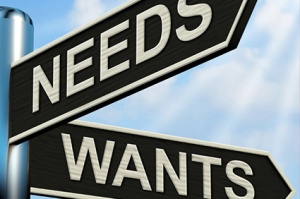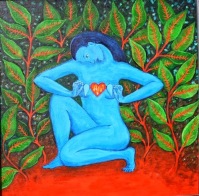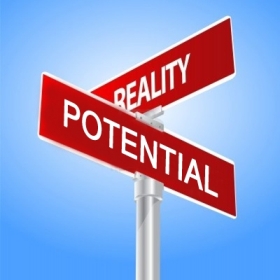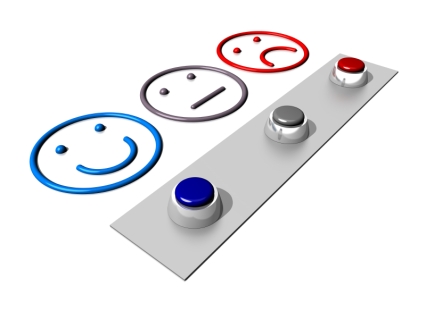expectations
To Want or Need, that is the Question …

When was the last time someone said, “I need you”? How did it make you feel? I will make a presumption here and just assume that the sentiment made you feel really good. It is, after all, nice to be needed; to feel like someone relies on you for something important. But I think there’s a better thing to say to someone. That thing is: “I want you.”
For all of those whose minds ventured immediately to sex, let me call you back to my point. I don’t mean “I want you” in any way other than to admit that there are many choices in life. To be wanted among so many other choices is, in my opinion, far more powerful than being needed.
Why do I make this distinction? It’s simple, really. I think we live in a world of disposable people; where we value a relationship or a person when they serve some kind of purpose for us. Maybe they consistently counsel our decisions in a rational way; maybe they have a truck we know we can use to move furniture; maybe they help us pay the rent or can be counted on for a fun night out on the town. Whatever the need, that person fulfills it for us. And so we stick with them, have good times with them, and continue to rely upon them to fulfill that need (and maybe others). But what happens when that need is no longer a need? What happens to our relationship with that person?
I used to have a good friend who would make the distinction all the time between a want and a need. When he would do something nice, I’d say, “Oh, you don’t have to do that.” And he would reply, “You’re right, I don’t have to. I want to.” Or, in other words, “I don’t need to, I want to.” See the difference? The wanting to is what makes the action nice. The wanting to be a support, the wanting to be present, the wanting to stick around – that’s what matters. Anyone can stick around when they need something. True friendship – or even love – is what exists when all needs are removed and you decide you still like the person simply for who they are.
I don’t know about you, but I’d take being valued for me over being valued for what I can provide any day of the week. Sure, you might love me for many reasons. But at the end of the day, if it’s not because of WHO I am (vs. what I provide), I’m pretty sure my life is better off without you.
Bleeding Out

“I gave it all … But you can’t stop taking from me…And way down I know…You know where to cut me with your eyes closed.”
I’ve been thinking recently about loss. Not loss as in the sudden and dramatic kind; more the kind of loss that happens over time. In relationships, this kind of loss happens when one person decides they no longer value a connection as they once did, when life situations pull people apart, or when one friend or partner has made a mistake and the other refuses to budge toward forgiveness and reconciliation. It’s the most painful kind of loss. Why? Because you feel it happening every single second and, despite any effort to close the gap, it continues to deepen and widen. In this way, it is not the loss we experience with death. Rather, it is a living loss. Where a loving and thriving relationship used to be, there is now a gaping hole; a monster that instead of just killing us with mercy, simply tears a limb off every day.
How many of us experience this kind of loss? Perhaps we hold onto something too long, hoping something will change. We bury hurt feelings, look away from indiscretions, and make excuses for times when another person hurt us (and maybe deeply) because the idea of just tearing off the band aid is too much to bear. It’s as if we think we might just bleed out uncontrollably if separation happens too quickly. So, instead, we bleed out gradually. How many of us are in a relationship like this? And while we hold on, hoping to preserve some part of what made us happy, how much of ourselves is bleeding out as well?
There are many reasons we allow this kind of slow death to happen in a relationship. If you’ve been there, you have your own reasons. And they are YOUR reasons; no one should judge them. I suppose we all walk away in the time and manner we are ready. Or, in less often circumstances, perhaps we find a way to mold the relationship into some new form that suits our needs. In any case, there is a grief associated with the loss of something that once was. And that grief can be deep and significant. But the pain associated with loss doesn’t mean that letting go is always the wrong thing to do.
More than 15 years ago, I let go of a marriage. We were married young, were too different, and despite our best intentions, just couldn’t make it work. We tried. For eight years, we tried. Then one day in the car on a Sunday afternoon, I was finally able to let go. I don’t know where that strength came from and I’m not sure I’ve seen it since. But during a perfectly normal moment of silence, I was able to say, “I’m done.”
I had a conversation last night with a woman who recently lost her son to a drug overdose. What struck me is that for years, this woman suffered that gradual loss of her son. I’m sure that in moments of hope and optimism, she believed he might someday get clean and rebuild his life. But in her words, she “knew this was coming.” The only peace she now finds is in the fact that the slow bleeding has stopped and her son is at peace. She no longer has to worry. Now, she just has to heal (easier said than done).
I write this with no good words of advice and no real “a-ha” moment of revelation. Instead, I just wonder how many of us are in relationships that are gradually causing us to bleed out. And, I guess I hope that when the bleeding stops – for whatever reason or in whatever way – that we are left able to heal and empowered to grow even stronger than we once were.
(Opening quote is from the song, “Bleed Out,” by Blue October. Hear the song and see all lyrics here.)
The Hazard of Being Comfortable

I was reading an author recently who tied intimacy and vulnerability together. She said that “to receive the former, I must freely and willingly express the latter.” Wait? You want me to actually make the choice to be vulnerable? Haven’t we always been told to be strong?
I think that if the author’s words are met with resistance, it is because we have turned vulnerability into a sign of weakness. But if I think about the idea of vulnerability more carefully, what I soon realize is that to be vulnerable takes a decent amount of courage. So it follows that vulnerability isn’t a sign of weakness; it is, indeed, brave.
In a post I made two years ago, I referenced Theologian William Shedd who said, “A ship is safe in harbor, but that’s not what ships are for.” Applied to our hearts, we can make the same argument. Certainly, our hearts are safer when they are kept secret. There’s no hazard to our ego or our emotions if we keep our frayed edges, secrets, fears, and affections tucked neatly inside our chests. But there is also no real chance at connection. I, for one, believe that each of us has a true capacity to give and receive love. But to make that deep connection with someone, we must be vulnerable.
All that said, I also believe that a large number of people have chosen to simply “settle.” What I mean is that they have chosen to be (or stay) in relationships that are comfortable. Maybe they’ve been hurt deeply in the past by a lover or friend. Maybe the world has taken too many punches that felt undeserved. Maybe they are just tired. Whatever the reason, these “comfortable” relationships are easy. And of course they are. If no one is looking into the crux of who you are or diving deep into your motivations, fears, longings and desires, it’s pretty easy to be superficially happy. One can just go day to day with a companion who provides company and to some extent stability. Shared experiences and history are what sustain these relationships (instead of intimacy and passion). And I guess if that’s all you need, that’s ok. I wonder, though, if people in these kinds of relationships ever feel truly alive.
I worry about us – as a community of people. In our efforts to protect ourselves from hurt, to avoid conflict, or to get through continually challenging times, how often do we decide to just “settle”? I know that life happens – good or bad – it happens. But in our efforts to be strong, to be protected, are we closing down our willingness to be vulnerable? And in that, are we also blocking out the possibility to know true love, intimacy, and connection with another person? While vulnerability can be terrifying, what is more frightening is the idea of wanting something that feels important, to have a deep desire for something more, but never being able to drop guard to let it in. The greatest regrets, I believe, come from the times when we had the chance to assume a vulnerable position and didn’t. Contrarily, greatest joy comes when a vulnerable heart opens to another who says, “I see you. I know you. And I love you.”
“Potentially” Happy

There’s a saying that goes, “When someone shows you who they are, believe them – the first time.” If you’re anything like me, you’ve given the benefit of the doubt (maybe more than once) to someone who hasn’t deserved it. Perhaps you’ve trusted or put faith in someone who talked a good game. I think it is the nature of an optimistic spirit. We always want to see the best in people. We always hope.
Recently, however, I’ve been thinking about the relationships in my life – over the years – where at the end of the day, I just should have known better. In all of these instances, I can look back now and see where I made my mistake. Instead of believing what the person showed me to be true, I just hung too long on the potential of that person to be something they weren’t. (I actually married – and then divorced – “potential.”) This holding on was motivated by what I thought was a noble effort to see the good in the person, to overlook mistakes in judgment, and to give that person the time and nurturing they needed to “improve.” My unwillingness to just give up (because aren’t we all taught to never give up) resulted in relationships that honestly just sucked away energy. In retrospect, it all seems like a silly waste of time. I simply spent a lot of time making excuses and justifying behaviors that didn’t make me happy.
Please don’t misunderstand my point. I don’t expect anyone to be perfect. As one of THE most imperfect people on the planet, I expect that people will sometimes disappoint me. I also know that my expectations of people can be lofty. Honestly, even Superman himself would fall short on some days. I am working on that. But what I intend to convey is that sometimes we want to believe something so badly, we ignore the reality in front of us. And in that simple act of ignorance, while we are holding out for the potential of someone else, we are forgetting our own potential to be happy.
All of that said, some of my most rewarding relationships today are not always easy. In fact, they are the ones that push me to examine my own values and expectations; they prompt me to expand my thinking and to evolve both mentally and spiritually. But the people with whom I am in these relationships have been honest and forthcoming. They consistently show me who they are. And their actions are ones that always make me believe that my time, my energy, and my love are well spent.
Sharing Expectations

It occurred to me today that we’re all at least just a little bit broken. Life circumstance, experience, or nurturing cause us to have parts that we hide from others. Every day we get up, put our best faces on, and go out to take on the world. But underneath the surface is always some nagging thing that tells our whole story. More often than not, it is those things – the things we don’t often speak of – that shape how we approach work, relationships, and even opportunities for ourselves.
I was recently watching an episode of the Showtime series Billions (which I could go on and on about – such a smart show). The billionaire says to his therapist, “People withhold crucial information all the time. We learn to manage our expectations about those closest to us, don’t we? So they don’t turn into mistrust or paranoia.”
Is that true? Do our closest relationships rely on how well we manage our expectations of others?
I think it is fair to say that every relationship comes with expectations. What’s an interesting think-about, however, is how those expectations get developed and agreed upon. For example, I think it is the rare couple who actually sits and outlines expectations when a relationship is in a healthy place. Instead, conversations about expectations usually happen when one person hurts another – intentionally or not. It is in those moments of hurt that someone says, “I just expected more.”
Why is it that we so often talk about setting expectations at work, but rarely talk about them in a relationship? Maybe in love we just take some things for granted because they are the socially acceptable doctrines we think we need to believe and accept. Things like monogamy, honesty, reliability, and loyalty are just sort of assumed expectations in a relationship. But should they be? The answer, I think, depends on the needs of the people in the actual relationship.
My point here isn’t to debate what kinds of qualities each partner must bring to a relationship. Rather, it is to suggest that every relationship is different; and the needs of people are wide and varied. I have been on the receiving end of the statement, “Your expectations are just too high” on more than one occasion. And in those circumstances, maybe my expectations were too high for the other person to meet. I think we get so wrapped up in trying to be everything to everyone that we rarely stop to actually think about or verbalize what we need from someone else. Most dangerously, we impose the golden rule of “do unto others” in many situations where the other person’s needs are dramatically different from our own. Never would I suggest that a person compromise the things that are truly important to them for the sake of a relationship. Instead, what I often wonder is if a failed relationship would have stood a better chance if a conversation happened long before the let-down did.